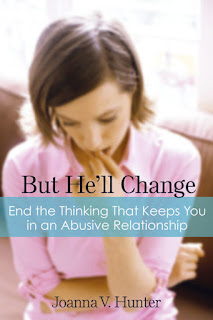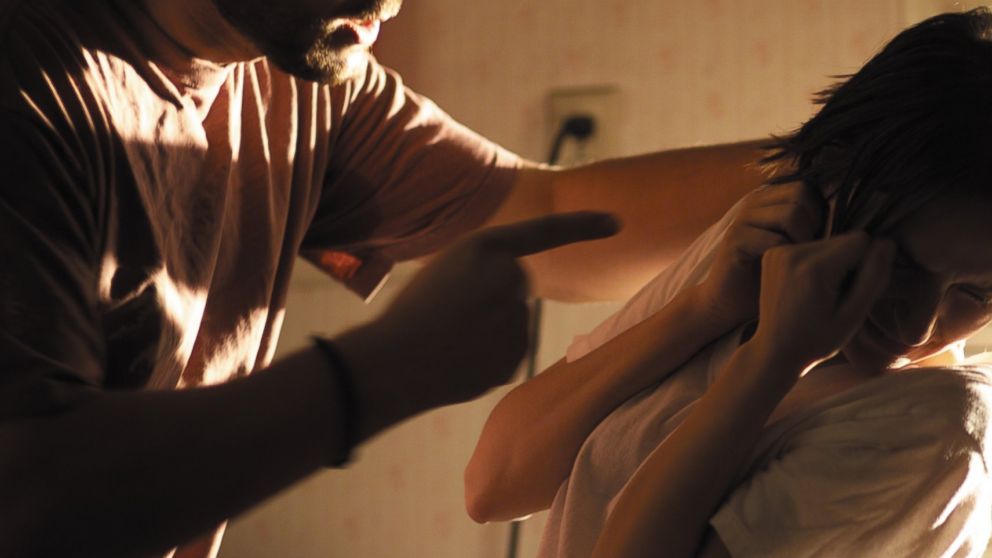When I left the abusive relationship, my raging question was—how did I get into that mess? I joined a support group, entered private therapy and worked diligently to assure that I was never going to have a relationship like that again.
I found the
Power and Control Wheel, the Duluth Model helpful to understand what components abusers use to control their victims. They:
• Isolate their partner from others;
• Minimize, deny and blame their behavior on their partners;
• Use their children to make their partners feel guilty or fearful;
• Use male privilege by having strict male/female roles with him as the master;
• Use economic abuse by controlling all finances;
• Use coercion and threats against victims, pets or children;
• Intimidate their partners by destroying their property, displaying weapons; and
• Use emotional abuse to make victims feel worthless, humiliated and guilty.
I understood that perpetrators use these techniques to coerce victims into compliance. This led to the question: What false beliefs do the abuser's behaviors instill in victims?
In my book,
But He’ll Change, I listed over one hundred precepts that create an elaborate and intricate root system entwined in victims’ psyches. The combination holds victims captive in the unhealthy relationships. To heal, each one (i.e. If I love him enough he will change, I am worthless, He doesn’t mean to hit me) must be addressed and challenged in order to uproot it. Like the perpetrators behaviors fall under the 8 categories on the Power and Control Wheel,
the victim’s false beliefs fall under 8 categories:
• Seeing my partner as all powerful and the center of my world;
• Denying and minimizing his behavior;
• Believing I can save him;
• Sacrificing my self;
• Blaming myself for his behavior/believing I deserve it;
• Blaming outside forces for his behavior;
• Accepting male privilege; and
• Giving up on myself.
At the hub of the perpetrator's wheel, the abuser’s driving force, is the need for absolute power and control. At the hub of the victim's wheel is the deep desire to be loved and validated. While, love is one of our basic needs, it should never be paired with “at any cost.” For victims of abuse, it often is.
Seeing Him as All-Powerful and the Center of My World
Victims are overjoyed to meet someone so perfect. They fall hard and fast because their perpetrators profess to share the victim's vision for the future. Controlling partners rush their victims into intimacy. Relationships often start with a period of limerence, where couples spend all their time together getting to know one another. During this period, controllers are already taking steps to isolate their victims from friends and family.
Controllers have spent a lifetime honing their individual skills to engage others, hook them, then play games with their psyches. Perpetrators immediately begin to instill self-doubt in victims by downplaying their achievements, suggesting what they should wear, and over-riding their choices.
On the outside, a controller may appear to be cool and have it all together—that great guy. He may be the pillar of the community or church, captain of the football team, top student, active in all kinds of benevolent causes. Friends of the victim tell her how lucky she is to have such a wonderful man (adding to the reasons why victims dismiss or ignore the warning signs).
Inside, controllers are often calculating predators aware of what they are doing, or they may have grown up with a sense of entitlement that allows them to view others as property to be used at their whim. This sense of entitlement enables them to expect that their superiority will be recognized by their partners who will then kowtow to their every demand. Controllers believe it is their right to use whatever force is necessary to keep their victims in line.
Victims of abuse live amid partner-created chaos. Every day is like walking through a mine field where the bombs have constantly been moved. Since, they are never in the same place, victims cannot learn how to avoid them. A behavior, dress, or meal that was acceptable one day, is grounds for a tirade the next. Since the rules change with the controllers’ whims, victims become hyper-vigilant, knowing that with one misstep everything blows up.
The constant chaos keeps the victim so busy that she does not have time to step back and see what he is doing—setting himself up as the center—and only thing—in her life. There is no time to follow her passions. It takes all her energy to survive. She has little left to give to the activities that would fill her spirit. Over a period of time, the victim’s life is absorbed and dissolved into the controlling partner’s world.
Hyper-vigilant victims are so keyed into the controller’s every raised eyebrow or tightening neck muscle that they know their partner better than they know themselves. I could tell by the sound of my husband’s footsteps coming across the porch whether I was in trouble that night. After a time, I understood that nothing I could say or do would change what was about to happen.
Denying and Minimizing His Behavior
When the violence begins, that first impression of him (that wonderful man) holds the victim in the relationship. She believes that is who he really is and if she could just do things “right” he would once again, and forevermore, be that man. He reinforces this belief by affirming that she is the one who ruined the relationship.
After his tirade, he shows his victim a snippet of that wonderful man. He claims to be sorry for the incident, but reminds her that if she had not—fill in the blank here—it would not have happened. She minimizes his bad behavior, resolves to be better and in a show of cooperation may give up activities that she enjoys to focus more on his needs and wants. Believing it is over, she is sure that this time he will stay that loving man. Soon enough he moves into a period of tension where he becomes annoyed and angry. Another more violent incident follows. This is the cycle of abuse that reoccurs throughout their lives together.
Science has shown that long-term exposure to emotional abuse causes a chemical change in a victim’s brain. This change skews the victim’s view of the severity of the violence, allowing her to tolerate life-threatening abuse.
[Footnote: Bessel van der Kolk, “The Body Keeps the Score: Memory and the Evolving Psychobiology of Post Traumatic Stress.” Harvard Review of Psychiatry 1, no. 5 (1994); 253-65.]
Next week, we take a look at the remaining beliefs...
---
Joanna
Hunter knows what it’s like to live in the secret, terrifying world of
abuse. She did it for almost 20 years. She also knows that victims can
transcend domestic abuse and go on to live a joy filled life. She's done
that.
Since
2001, she has educated and shared her story with thousands of adults
and teenagers through classrooms and community organizations.
She is a popular guest speaker at universities, where she trains
students in medical programs how to screen patients for abuse and how to
help victims. She volunteers at the women’s shelter in her area.
Connect with Joanna:
Facebook: A place where those touched by DV can join a caring community of survivors
Blog: Focuses on healing after abuse


